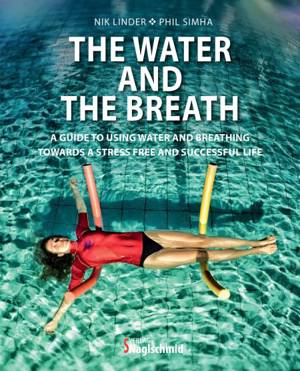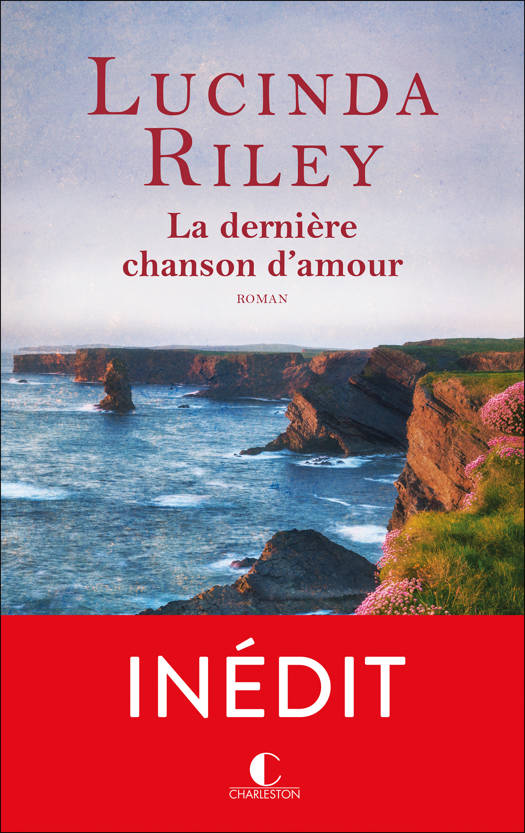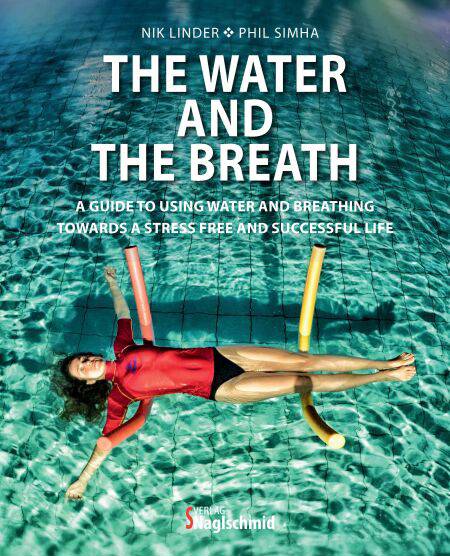
- Retrait en 2 heures
- Assortiment impressionnant
- Paiement sécurisé
- Toujours un magasin près de chez vous
- Retrait gratuit dans votre magasin Club
- 7.000.0000 titres dans notre catalogue
- Payer en toute sécurité
- Toujours un magasin près de chez vous
THE WATER AND THE BREATH EBOOK
A guide to using water and breathing towards a stress free and successful life
Nik Linder, Phil Simha
Ebook | Anglais
14,99 €
+ 14 points
Description
THE WATER AND THE BREATH
In the past couple of years, recreational freediving has evolved to such an alternative way. A way the allows its partakers to open up to breathing and relaxation. Because without correct breathing, without full relaxation, there is no freediving.
This book describes simple techniques, which support a healthy and positive way of life. They are not new. But years of practice and coaching experience by the authors led to a vivid and fully illustrated guide, showing the most common practices of professional freedivers.
The simple fact that you are holding this book in your hand, proofs that you are searching. It doesn't matter if you are searching to make progress in the sport of freediving or to find new ways of relaxation for yourself – the text and the photos of this publication will affect you.
Every time, this book comes into your sight, being it on your couch, or the edge of your bed, it will remind you that your personal well-being is on you and no one else than you. Additional practice and exchange with a master is helpful too.
On land, breathing exercises do not only help to relax. They are common practice in Pranayama, the field of breathing in Yoga.
The exercises are known for their lung cleaning effects, their vitalizing effect on the body, they improve the ability of concentration and
much more. Mainly these exercises help to develop an awareness of your own breathing. As a consequence you are more attentive,
able to recognize stress and simply breathe it away.
In the water the non-breathing comes into play. In this phase where you are not distracted by your own breathing any more, you are
able to open up a window to your inner-self. You experience a deep form of meditation.
Exercises from Pranayama, relaxation techniques, autogenic training, meditation, and mental training support this process. As a
core element you use a mechanism, that has been inherited in your body ever since – the mammalian dive reflex. It is an important protective
mechanism, responsible to make sure humans can spend time under water and stay unharmed. Professional freedivers use
the mammalian dive reflex with masterly skill.
Yogis in the field of Pranayama speak about the "art of breathing" and the "art of let-the-breathing-be". Parts of the freediving practice
are relaxation and breathing exercises. Continuous practice creates more relaxed people, who are using their breathing consciously,
anticipate stress faster, and have ways to deal with it.
Freedivers use these techniques to improve their performances. Relaqua uses them to help you to relax and avoid stress.
In the past couple of years, recreational freediving has evolved to such an alternative way. A way the allows its partakers to open up to breathing and relaxation. Because without correct breathing, without full relaxation, there is no freediving.
This book describes simple techniques, which support a healthy and positive way of life. They are not new. But years of practice and coaching experience by the authors led to a vivid and fully illustrated guide, showing the most common practices of professional freedivers.
The simple fact that you are holding this book in your hand, proofs that you are searching. It doesn't matter if you are searching to make progress in the sport of freediving or to find new ways of relaxation for yourself – the text and the photos of this publication will affect you.
Every time, this book comes into your sight, being it on your couch, or the edge of your bed, it will remind you that your personal well-being is on you and no one else than you. Additional practice and exchange with a master is helpful too.
On land, breathing exercises do not only help to relax. They are common practice in Pranayama, the field of breathing in Yoga.
The exercises are known for their lung cleaning effects, their vitalizing effect on the body, they improve the ability of concentration and
much more. Mainly these exercises help to develop an awareness of your own breathing. As a consequence you are more attentive,
able to recognize stress and simply breathe it away.
In the water the non-breathing comes into play. In this phase where you are not distracted by your own breathing any more, you are
able to open up a window to your inner-self. You experience a deep form of meditation.
Exercises from Pranayama, relaxation techniques, autogenic training, meditation, and mental training support this process. As a
core element you use a mechanism, that has been inherited in your body ever since – the mammalian dive reflex. It is an important protective
mechanism, responsible to make sure humans can spend time under water and stay unharmed. Professional freedivers use
the mammalian dive reflex with masterly skill.
Yogis in the field of Pranayama speak about the "art of breathing" and the "art of let-the-breathing-be". Parts of the freediving practice
are relaxation and breathing exercises. Continuous practice creates more relaxed people, who are using their breathing consciously,
anticipate stress faster, and have ways to deal with it.
Freedivers use these techniques to improve their performances. Relaqua uses them to help you to relax and avoid stress.
Spécifications
Parties prenantes
- Auteur(s) :
- Editeur:
Contenu
- Nombre de pages :
- 144
- Langue:
- Anglais
Caractéristiques
- EAN:
- 9783895949326
- Date de parution :
- 25-07-19
- Format:
- Ebook
- Protection digitale:
- Digital watermarking
- Format numérique:

Seulement chez Librairie Club
+ 14 points sur votre carte client de Librairie Club
Les avis
Nous publions uniquement les avis qui respectent les conditions requises. Consultez nos conditions pour les avis.







